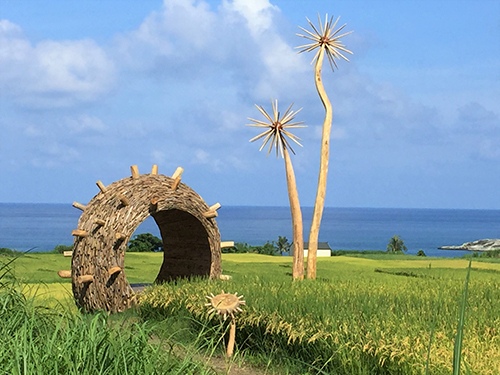Anne Wu — The Scientist that Transforms Tribal Farmlands
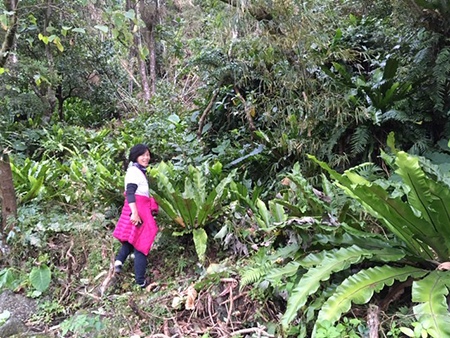
Anne Wu was born in a remote village by the sea in Xinzhu, Taiwan with seven siblings. In order to sustain the family her parents turned their home into a factory for weaving firecrackers whenever there was free time from work in the fields. Strolling by the sea, however, she often dreamt of seeing the world and people beyond.
Since she was a little girl Anne loved studying and sports and was an excellent student. The fate of most girls from the countryside was to work in a factory after finishing grammar school. So on the day of graduation she was, like all the other girls, sent in a bus to the factory and lived there. She cried night and day and just wanted to study. Her sister pleaded with her parents and her wish was fulfilled — she became the first child in the family to attend middle school.
After Anne was recruited for the school’s handball team, she participated in various contests in different cities, and was able to see the world beyond her hometown. She also studied very hard every semester in order to win scholarships, and was the first child in her village to pass entrance exams and get accepted to the District Girls High School.
Anne chose, however, to work in a capacitor factory during the day to generate income, and studied at night in vocational high school. Although she wished very much to attend college after high school, she simply could not afford it. As a result, she worked in the daytime in a pharmaceutical factory specializing in detection and quality control, hence building up strong skills in foundational microbiological operations. At night she studied chemical engineering in Taipei Tech. After graduation she worked as a researcher in biotech and her excellent performance was highly regarded.
During the 1980’s in Taiwan biotechnology was just starting when Guo-Ding Li, the “Father of Biotech in Taiwan,” introduced biotechnology from other countries. In 1984 he established DCB (Development Center for Biotechnology) to recruit overseas scholars for research and development. Anne’s strong biotech background allowed her to become a researcher in the Center. Her hard-working attitude and resolve to undertake any kind of difficulties earned her great respect. As it was necessary for research, she advanced her studies in graduate school and became the first family member to earn a Master’s Degree. It was something she never dreamt as being possible when she was a little girl.
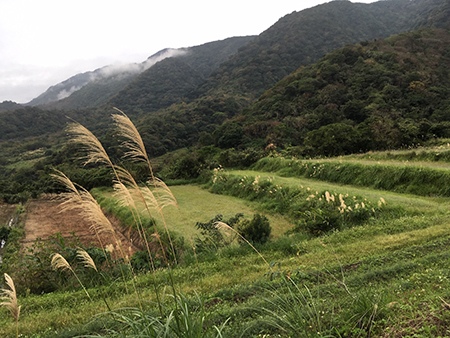
The Turning Point – A Promise
In 2001, Hurricane Tao-Zhi caused 111 deaths, 103 missing, and $77 billion in damage in agriculture, forestry, and fishing. Two missionaries from the Amis Tribe, Hualian, that suffered from the hurricane, came to DCB asking for help. At that time Anne was forty years old and just finished her cancer treatments. In view of her health conditions, her manager assigned her to the task as a “companion” whenever the tribes needed help, thinking experimental works in the fields outside the lab might relieve her from the pressure of research and help her while recuperating.
Anne’s experience with cancer taught her how important it is to promote healthy, organic foods, and a pollution-free environment. She decided to try organic farming. Although the budget for organic farming was never approved, she could not go back on her promise. She went to Hualian every two weeks paying commune costs out of her own pocket to start training the tribe in organic farming.
At the end of 2003 the budget for soil and water quality tests was approved. Anne could formally help the tribe as a DCB representative researcher in introducing organic farming. It turned out her connection with the tribes lasted much longer. To the present day; it has been twenty years since she first devoted her care and effort for the tribes, earning her the nickname “Mother of the tribes”.
In the past the tribes used knives as farming tools, controlled burning to minimize pests in the fields, and used burnt plants as fertilizer to improve the soil. If there was no animal disturbance and no pressure on maximized harvest per hectare, this traditional method was self-sufficient for the families. Nowadays a farm that just meets a family’s nutritional needs is no longer sufficient as it is necessary to generate income to pay for public transportation, take kids to school, and pay family expenses.
The two missionaries came for help because they wished their tribes to be free from poverty through new modes of agriculture, thereby improving their standard of living. Anne convinced the tribes to abandon chemical fertilizer and pesticides, and make use of local materials, such as corn stalks, rice shells, cow dung, milk …, to make organic compost and liquid fertilizer using natural microbial fermentation to speed up decomposition.
The antagonism among different strains of microbes, some beneficial to the soil and some harmful, helps plants resist disease. Some plants, such as Bitter Tea Meal, contain alkaloids and can serve as a natural pesticide. Sapindus with rich saponin can serve as an emulsifier or natural surfactant to be modulated into a controlling agent.
Anne learned to customize organic fertilizers in various doses and ratios to target the specific needs of various plants, and guided the tribes to improve their land management practices so that their farmlands could become healthier and robust. She also taught how to use specific characteristics of plants to adopt efficient growing conditions in specific geological conditions, for example using current Poaceae plants as supports for vines. Thus she experimented to come up with what was needed.
With these types of organic farming, human destruction of nature is minimized, soil and water can be well conserved, farmers can work in a healthy environment, and people can enjoy safe-to-eat fruits and vegetables, indeed the core ideals of good health. Furthermore, as leaves and roots of plants grown in natural materials can absorb all sorts of trace elements, the taste and texture would be greatly different from those grown in the green houses.
Anne hopes that every tribe member who converts to organic farming becomes a “seed” to transmit this agricultural management knowledge to other tribes, and passes it down from generation to generation.
As “Companion of the Tribes” it is important to establish good communication. Therefore, Anne trains a “companion on site” in each tribe who is in charge of communication, coordination, and execution of farming tasks. Furthermore, the “companion” is responsible for making connections with other tribes, thus encouraging organic farming practices to spread “organically” among the other tribes.
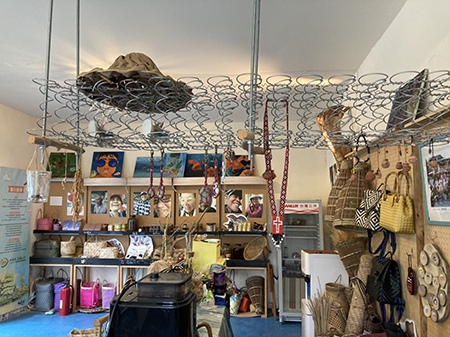
In order for the harvest to be sold to organic produce markets, Anne helped the tribes to work for their organic certification. In one instance she helped the missionaries of Talanpo Tribes to grow their Orange Day lilies in an organic manner. Unfortunately, she could not apply for the certification from Taiwan due to restrictions in renting contracts and sole ownership of land. As desperate as she was, she approached the Office of Tribal Affairs and the director provided funding to try overseas. With their help and to everyone’s surprise, in 2009 their organic certification was granted by IMO (Institute for Ecomarket) in Switzerland. It was the first time that organic produce from a Taiwanese tribe (not to mention a “dark tribe”, one that had no electricity) won international recognition.
In 2004 Anne founded Organic Life Shop. In 2006, in order to consume the vast amount of produce from twelve tribes, she asked her sister and brother-in-law (principal of a grammar school in Xinzhu) to promote organic meals on campus. The idea was gradually welcomed by nine schools with “Organic Food Day” events organized with teachers, thus making eating/drinking part of education. She further established nine after school “study havens” for poor kids as well as training in organic farming. She also shared these experiences in Food/Agriculture Education Programs held by National Taiwan Museum and Lovely Taiwan, thus promoting “Organic Food Days” in metropolitan Taipei.
In 2011 she started Taiwan Way (taiwanorigin.com.tw) to market healthy tribal products online, thus perpetuating tribal organic farming, culture. It also made available teas, herbs (such as native Alianthus prickly ash), Shell ginger, Perilla…, salts from salt wood, cookies using fruit salts, and cakes flavored with herbs and dried fruits.
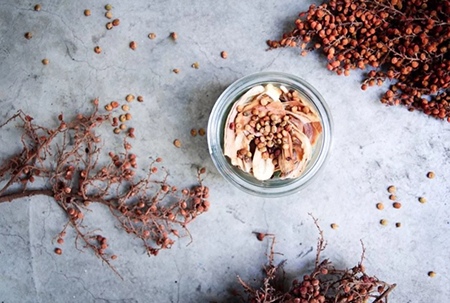
Not trained in business, Anne remained creative and worked hard despite various hardships. For example, she transformed the use of hibiscus flowers from commonplace Chinese medicine to healthy candied hibiscus and hibiscus donuts. Similarly, in a Hakka Culture Show in 2017 she incorporated fragrant herbs, mushrooms, dried fruits, etc. and presented fermented bean curd with forty-two various flavors. She even labeled the not-so-good-looking pickled mustard greens with her own elegant calligraphy and paintings.
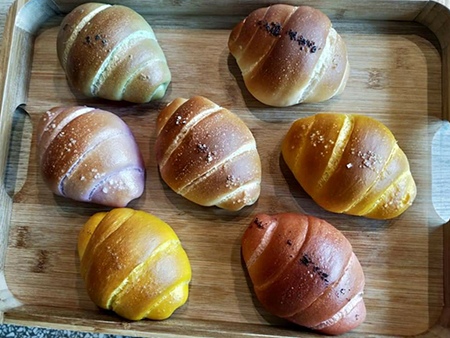
A recent inspiration with friends in collaboration with Pao-Chun Wu (winner of the Master Baker title in the bread category of the 2010 Bakery Masters competition held in Paris) is the making of the “with love from Taiwan” croissants. These croissants are topped with organic, flavorful salts from the seas, amid coral reefs, and salt wood (Rhus chinensis) from the mountain.
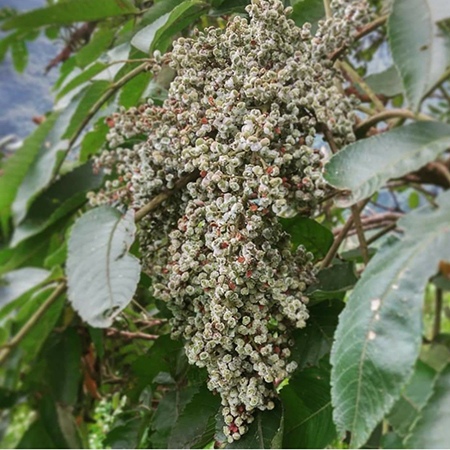
In order to transmit and make use of her knowledge of organic farming Anne even established two educational farms in Taipei and Taoyuan. On these educational farms she can present the entire curriculum of healthy management skills in a single location while at the same time prepare herself to accommodate the ever more skillful tribal farmers.
Community Management
Currently, tribal farmlands are maintained by the elderly as younger folks usually leave home to make a living in the cities. If every tribe has its own unique products and diverse ecology, thus creating its own supply chain, it is more likely that the younger generations will come back to the tribe. To make this a reality, she realized it was necessary to work on community management.
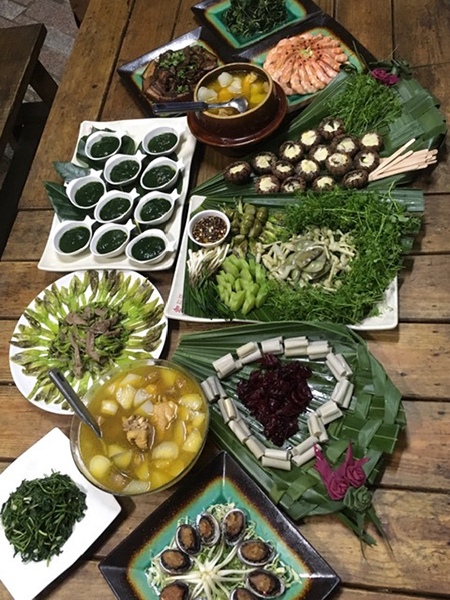
Anne attempts to develop the tribes as in-depth tourist attractions as long as their cultures remain intact and non-commercialized. Foods can be cooked with traditional wood burning stoves. Locally farmed delicacies from the land or the sea can be made with enchanting colors and fragrances and can be arranged on delicately woven palms or bread-fruit tree leaves. They are pure, organic, fresh, and healthy. If such amazing meals can be coupled with the spectacular sightseeing available along the sea (e.g., coral reefs) and activities, such as surfing, diving, canoeing, it would form the basis of enriching, exciting experiences for tourists.
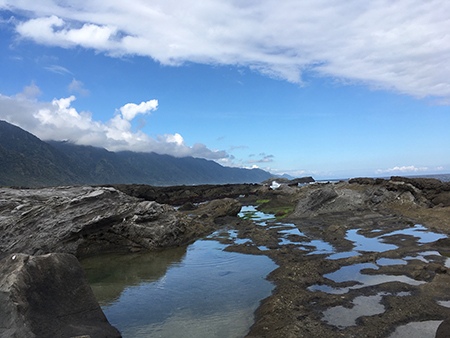
One meaningful cross-tribal/cultural activity she held earlier this year was to share the bamboo raft building technique of the Ami Tribes as well as that of the traditional Eskimo canoe. Every participant climbed the mountain to gather the necessary materials, made miniature scale models, and then made the real canoe with exactitude and care.
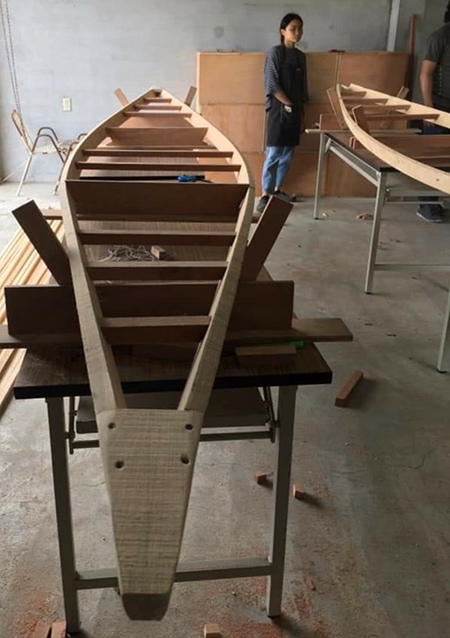
Anne also noticed the ladies of the Taromak Tribe love to weave garlands with flowers from various seasons for decoration. Why not encourage the tribe to use their traditional herbs and medicines to develop herbal healing sessions? How about devoting themselves to forestry and promoting experiences involving mind and body through Eco-tours? If tribal cultures can be traced to their ancestral roots, harvest festivals and ceremonies can become part of the industry chain and thus the core tribal culture can be better preserved.
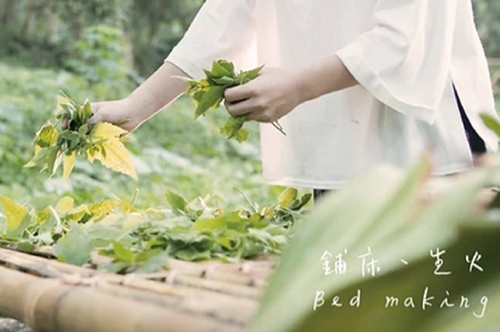
Transmissions of Tribal Culture
For example, millets used by the Tarmac Tribe were originally not planted as intensive farming; it was just necessary for self-sustaining in their primitive hunting-gatherer culture. Millets, however, are tightly related to tribal life because they are imbued with sacred significance for festivals and ceremonies as well as every aspect of life from birth to death.
Divination is important in orally transmitted cultures. Millets are planted in specific locations as indicated by dream divination by the Tarmac elders. Many tribal elders can also perform divination by listening to the sounds of birds. Like ancestors or trees, birds also possess spirit.
Originally, each tribe has its own myths and beliefs, though nowadays most of them are Catholic or Christian. Traditional festivals and rituals, however, are nevertheless still performed.
Anne is a scientist who loves art. She is particularly seasoned in watercolor, Chinese painting, and calligraphy. There is also a very romantic place deep inside her heart. After being companions for the tribes for decades, she has been very moved by the festivals. Hearing the elders retelling tribal histories, the heart-felt impact she experienced was beyond words. It was so powerful she decided to work on a documentary on the millet culture. It is scheduled to be done by the end of 2020, and she plans to submit the film to international film festivals.
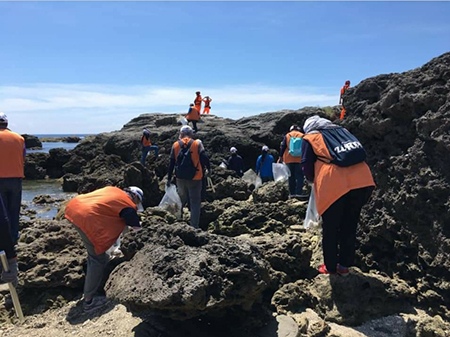
From Organic Farming to Marine Conservation
The northeast coast of Taiwan is the northernmost home of tropical fish. Endowed with warm temperatures and coral reefs, this subtropical water becomes a paradise for seaweed, fish, shrimp, and shellfish. Hence, this area attracts the attention of ecological conservationists. Anne’s wish is that methods can be developed as soon as possible to forever preserve the current offshore state of the sea.
Candy, a friend of Anne, is a diving coach and loves the sea. While diving along the eastern coast of Taiwan she noticed coral bleaching caused by pollution. The two women started educating the tribes along the sea to adopt organic farming and holding regular events to clean the sea and beaches to decrease pollution and preserve the offshore ecology. “We can’t change the currents from already polluted oceans from afar and the negative effects of air pollution of the whole earth. All we can do is act locally.”
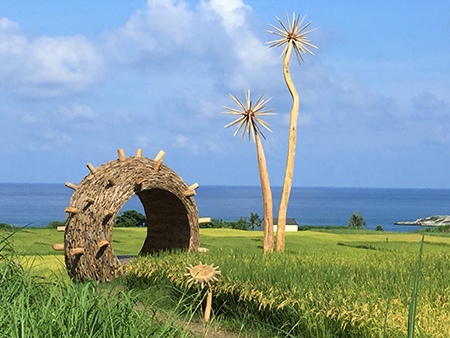
Anne also joined Kuang-Chung Lee, Associate Professor of National Dong Hwa University, in his “Satoyama Initiative” to connect tribes from the east coast to work together to improve the ecology of rivers and farmlands on terraces sandwiched between the mountains and the sea, so animals and fishes can live happily in a healthy paradise.
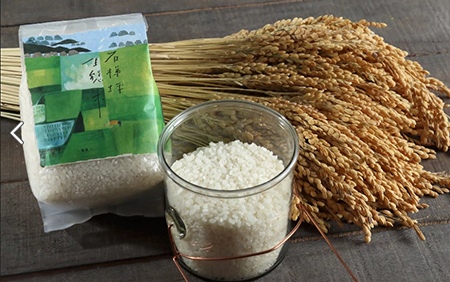
It was lucky for me last December to visit the Fuxing Tribe that has completely embraced organic farming. Growing on terraces overlooking the Pacific ocean, rice, wood blue, oil chrysanthemum, carrots, herbs … danced amid the marine fog and fragrant sea air in these unpolluted dream-like farmlands. I felt like I was in a dream or a lost paradise!
I was also surprised to see rice patches extending right next to the sea! The farming of the organic “Sea Rice” from Shitiping was revived on the terraces adjoining the sea! It enjoys pure stream water from the mountain and the cool breezes from the sea. No wonder it has a very special, fragrant taste of its own!
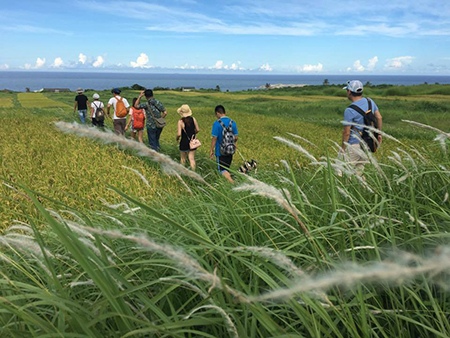
A Visionary Heroine with an Expansive Mind
Despite her petite and fragile appearance, in recent years Anne’s life has been packed with tight schedules for planning, funding applications, implementations, designing new products, and problem-solving. She often hopped on to the first train eastbound or southbound to promote organic farming, ecological industry, community management, preservation of tribal cultures, rejuvenate farms and forests for over 30 tribes, and offered her help in emergency disaster relief, such as helping passion fruit farms destroyed by hurricanes to recuperate and become, again, a haven with abundant harvests amid lovely flowers!
What is more meaningful for me is that Anne acts in accordance with her beliefs! We all shout “protect the earth” but are unwilling to compromise the conveniences made possible by modern (and often destructive) life. We know something needs to be done to address the environmental crisis but don’t know how or don’t believe that we as individuals can make any difference. Anne’s scientific knowledge and skills could easily earn her high paid jobs in the biotechnology industry yet she eschews wealth and chooses instead to help the poor, deprived, mostly ignored tribes. Bit by bit she established organic paradises without pollution which is what the earth desperately needs right now! I feel we are blessed to have her quietly doing all she can for a better, healthier earth, hence better lives for the future. Still she says, “My ability is limited! So I better just work quietly!” But perhaps most importantly, she stands as a role model for the rest of us.
I can’t imagine how she throws herself into the primitive jungles and contacts the tribes with totally unknown languages and cultures. “Are you never afraid?” I asked. “Well…I am always afraid I don’t have enough experience. Therefore, I dare not make as many promises. I just plan everything well beforehand and go for it! Tribal folks in Taiwan are gentle beings… although some of them are relatively more warlike… but all these wonderful experiences won’t happen if the two missionaries from the tribes did not show up twenty years ago.”
Although Anne devotes all of her energy and skills to organic farming and ecological conservation, she humbly feels rewarded by being able to apply theories of biotechnology in real world problem-solving, to learn, improve, expand her vision, and to help the tribal farmers regain confidence in traditional farming.
Starting from a promise, it is hard to imagine how this petite lady from a poor rural village, who encountered and overcame all sorts of hardships, can now contribute so much through her compassion, effort, and perseverance without a thought for rewards. No wonder she can always TURN OBSTACLES INTO HOPES and often get timely supports from friends. If she can make her dreams of the organic paradise come true, she can turn more places on earth into healthy, pollution free paradises! We must be grateful for heroines like Anne Wu!
—Ming-Chien Liang 10/20
